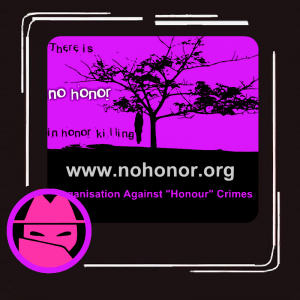Honour killing outcry in Iraqi Kurdistan
Six years ago, Hataw fled to a women’s shelter to escape her brother’s rage when she refused to marry the man he chose for her.
Just a few weeks later, her brother ambushed her and her mother near the shelter, opening fire with an automatic weapon.
Hataw, not her real name, was shot seven times; her mother twice. Miraculously, they survived, but their physical and psychological wounds may never heal.
Hataw, now 26, whose brother escaped prosecution, lost one of her kidneys and her mother has scars on one of her arms.
Although Hataw – still living in a women’s refuge – refused to speak to IWPR, she gave permission for the head of the shelter to speak on her behalf.
“She doesn’t sleep all night long,” said the head. “She gets up and screams at the slightest noise, fearing her brother will break in and kill her.”
Hataw is one of a growing number of women in Iraqi Kurdistan falling victim to domestic violence, with honor killings, in particular, the focus of concern among human rights groups.
The recent increase in cases has outraged activists who blame the Kurdish government for not doing enough to protect women.
The region’s human rights ministry says that honor killings in Iraqi Kurdistan rose from 106 in 2005 to 266 the following year. Figures for 2007 are not available, but official sources say in Sulaimaniyah alone 30 women were killed in the first six months of the year.
“Every day, more and more women are killed in Kurdistan while the authorities watch and do nothing,” said Roonak Faraj, head of the Women’s Media and Cultural Centre in Sulaimaniyah.
In April 2007, an angry mob stoned to death a 17-year-old Yezidi girl, Duaa Khalil Aswad, in Bashiqa, a small town east of the city of Mosul, while bystanders applauded and filmed the killing on their mobile phones.
Duaa’s crime was that she had fallen in love with a Muslim boy. The footage was seen by thousands on the internet, sparking massive condemnation by human rights groups around the world.
Faraj said the male-dominated local culture is one of the reasons why women are targeted in her region. “It is a patriarchal society,” she said, “Males control everything. For example, they decide whom a girl should marry.”
There is also insufficient legislation to punish violence against women. Article 111 of the Iraqi Penal Code – passed in 1969 and still valid in most of the country – tolerates honour killings if the defendant has “honorable motives.”
The maximum punishment is two years’ imprisonment, and, in most cases, the sentence is commuted if the defendant has no criminal background.
In 2002, the Kurdish parliament amended the 1969 law to allow honor killings to be treated in the same way as murder. However, critics say that the changes were too weak.
Following the killing of Duaa, the Kurdish government formed two agencies to deal with violence against women, one based in Sulaimaniyah and another in Erbil.
Zhilamo Abdul-Qadir, an official in the Sulaimaniyah agency, said that since July 2007 they have investigated 110 cases of serious threats against women, successfully intervening on 70 occasions.
“We have rescued many women from death in the last few months,” said Twana Ali, spokesman for the Sulaimaniyah agency. “We have arrested several suspects as well.”
Recently, more than 20 women’s advocacy groups came together to pressure the authorities to impose heavier punishments on perpetrators of violence against women and have made recommendations to parliament on the matter.
They’ve also called on the regional assembly to pass other legislation tackling discrimination against women, such as a ban on polygamy and forced marriage, and to ensure equality between men and women in relation to inheritance law.
Pakhshan Zangana, head of the Women’s Caucus in the Kurdistan parliament in Erbil, said, “The law is outdated and needs amendments that go along with the current situation.”The government has pledged reforms, but for Faraj actions speak louder than words.
“When bird flu broke out, the government launched a huge campaign to make people aware of the risks of the disease,” he said. “You wonder why they can’t launch a similar campaign to put an end to the killing women.”
|
What is an honour killing? |
|
An honour killing is a murder in the name of honour. If a brother murders his sister to restore family honour, it is an honour killing. According to activists, the most common reasons for honour killings are as the victim:
Human rights activists believe that 100,000 honour killings are carried out every year, most of which are not reported to the authorities and some are even deliberately covered up by the authorities themselves, for example because the perpetrators are good friends with local policemen, officials or politicians. Violence against girls and women remains a serious problem in Pakistan, India, Afghanistan, Iraq, Syria, Iran, Serbia and Turkey. |
Latest posts
-
European Report: Dutch Police Fail in Handling Honor-Based Violence
-
Husband (42) arrested after death of 33-year-old woman in Zaltbommel, Netherlands
-
Honor Killing in Kabul, Afghanistan? The Disappearance and Death of 17-Year-Old Farkhunda
-
Cover-up honor killing of Narges Achikzei: 240 testimonies expose years of deliberate negligence by the Inspectorate of Justice and Security
-
Disappearance of Yildiz Kayali leads to severe punishment for partner
-
Honor Killing in Eskilstuna, Sweden: Abier Murdered for Wanting a Divorce
-
Honor Killing in Mailsi, Pakistan: Mother-in-law Set on Fire After Refusal of Reconciliation
-
Honor Killing in Nahavand, Iran: 26-Year-Old Athlete Raheleh Siyavoshi Murdered by Her Husband
-
Suspected Honor Killing of Young Engineer in India
-
Honor Killing in Uttar Pradesh, India: 17-Year-Old Girl Shot Dead by Father and Brother





















































